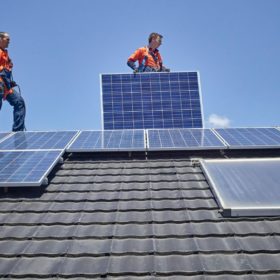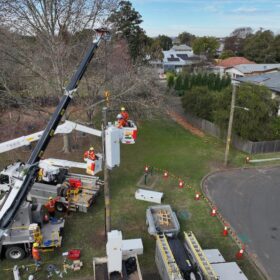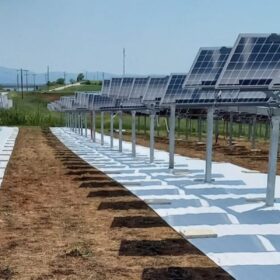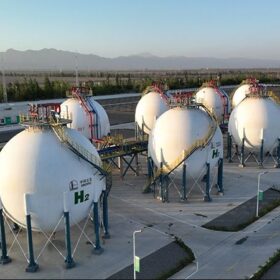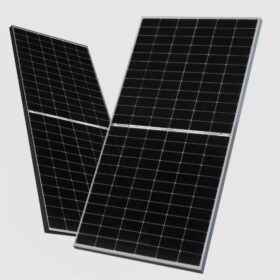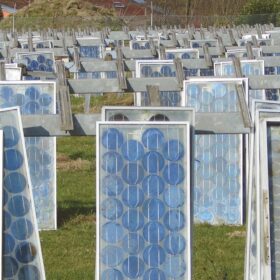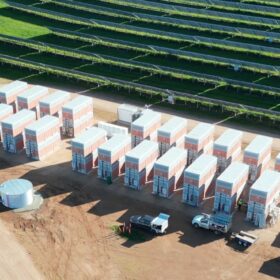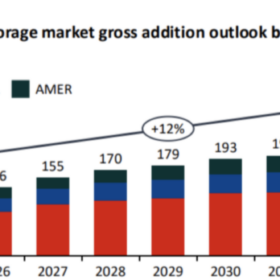New app to calculate payback periods of rooftop PV systems
The Amortisator app, initially developed for the German market, is now available on the Apple and Google Play stores. Primarily targeting customer advisors, the app can be accessed for a monthly fee of €9.99 ($10.93).
Ausgrid adopts pole-mounted technology for community battery trial
New South Wales network operator Ausgrid has installed its first pole-mounted battery energy storage system as part of a trial which will examine the viability of the technology to better manage the increasing penetration of rooftop solar and periods of peak demand on the network.
Membrane boosts bifacial solar module yield by 6.4%
German renewables developer Solar Kapital has deployed membranes at three of its utility scale PV plants in Greece and claims the technology has delivered an up to 6.4% increase in yield and the payback time of the new solution is relatively short.
The Hydrogen Stream: China starts world’s biggest solar-to-hydrogen site
China’s Sinopec has switched on the world’s largest solar-to-hydrogen project in Xinjiang, while India has unveiled a new plan to incentivize green hydrogen and electrolyzer production.
Green Gravity links with miner to fast track gravity energy storage tech
Australian renewable energy startup Green Gravity has teamed with underground mining contractor RUC to accelerate the commercialisation of its gravitational energy storage technology which rests on moving weighted objects through disused mine shafts.
Test shows higher yield, lower degradation for n-type solar modules
Research carried out by China‘s National Photovoltaic Quality Inspection Center shows that new n-type TOPCon modules are living up to their promise, outperforming the previous generation of p-type PERC products. Data gathered over six months from a fixed-tilt PV system showed that the n-type products produced 3.69% more energy, and also suffered much lower performance losses.
Solar passports to support PV waste management in India
A new study proposes blockchain-based solar passports to address the PV waste management challenge in India. It says such a framework would enable transparent tracking and verification of PV panels throughout their life cycle.
Aussie entrepreneur launches 6 kW / 7.2 kWh mobile solar generator
Decarbon Venture, a startup cofounded by an outback-living Australian entrepreneur, has launched what it claims to be the world’s first “swappable” solar generator at half the weight and double the power rating of other products on the market.
Solar-driven photoreactors to generate hydrogen on rooftops
Scientists led by the Karlsruhe Institute of Technology have designed panel-like photoreactors relying on a water-splitting photocatalyst that could produce hydrogen on rooftops or dedicated solar farms. They claim the photoreactors have high economic potential because of their ‘extremely’ low costs.
South Australian solar and storage project reaches commissioning milestone
Commissioning of one of Australia’s first solar-powered utility scale vanadium flow batteries has commenced with developer Yadlamalka Energy confirming that construction of its $22 million Spencer Energy Project in South Australia is now complete.
